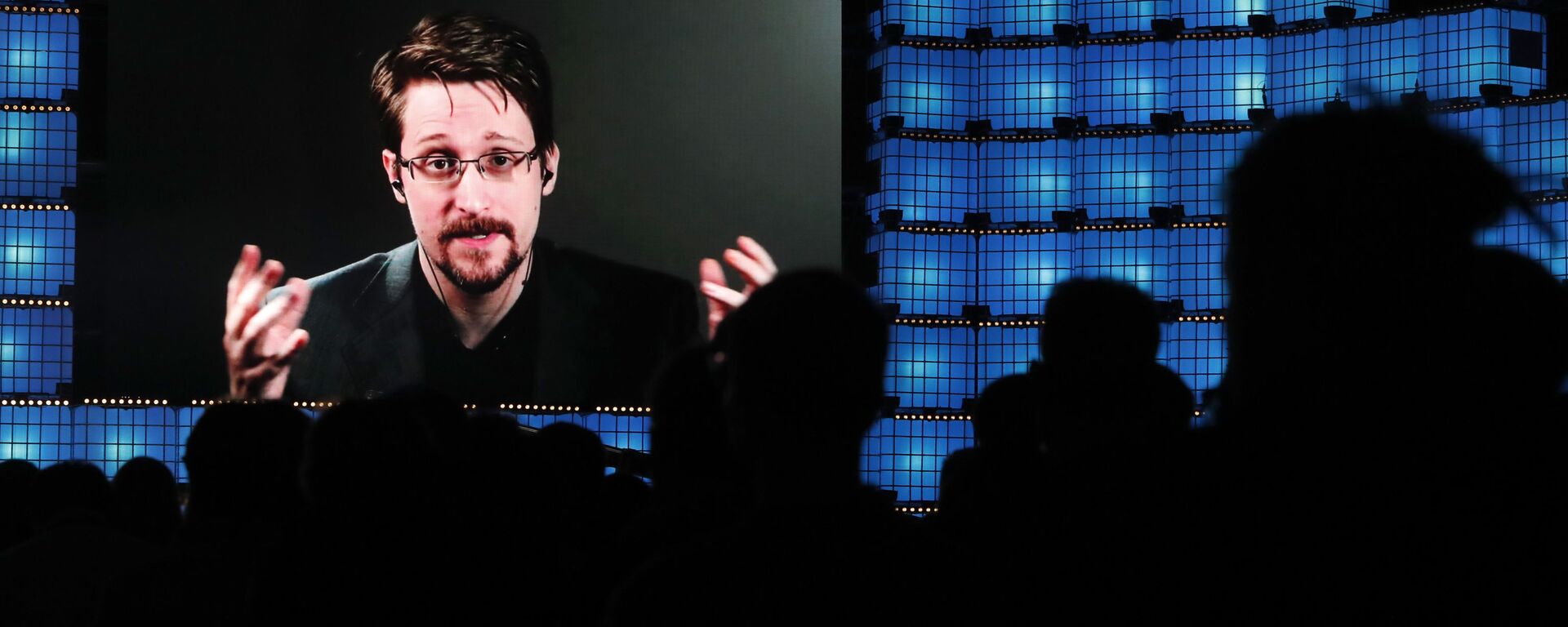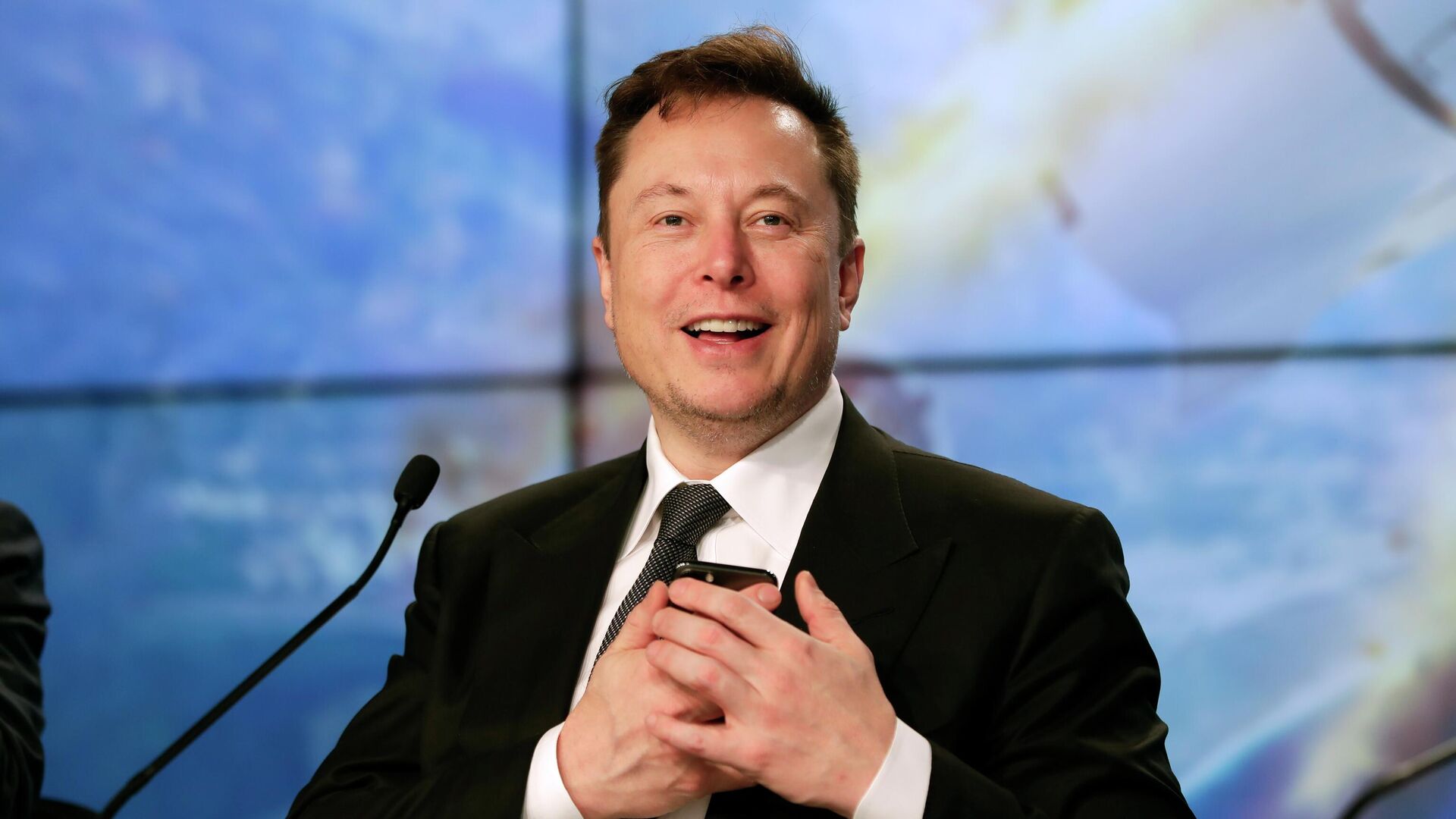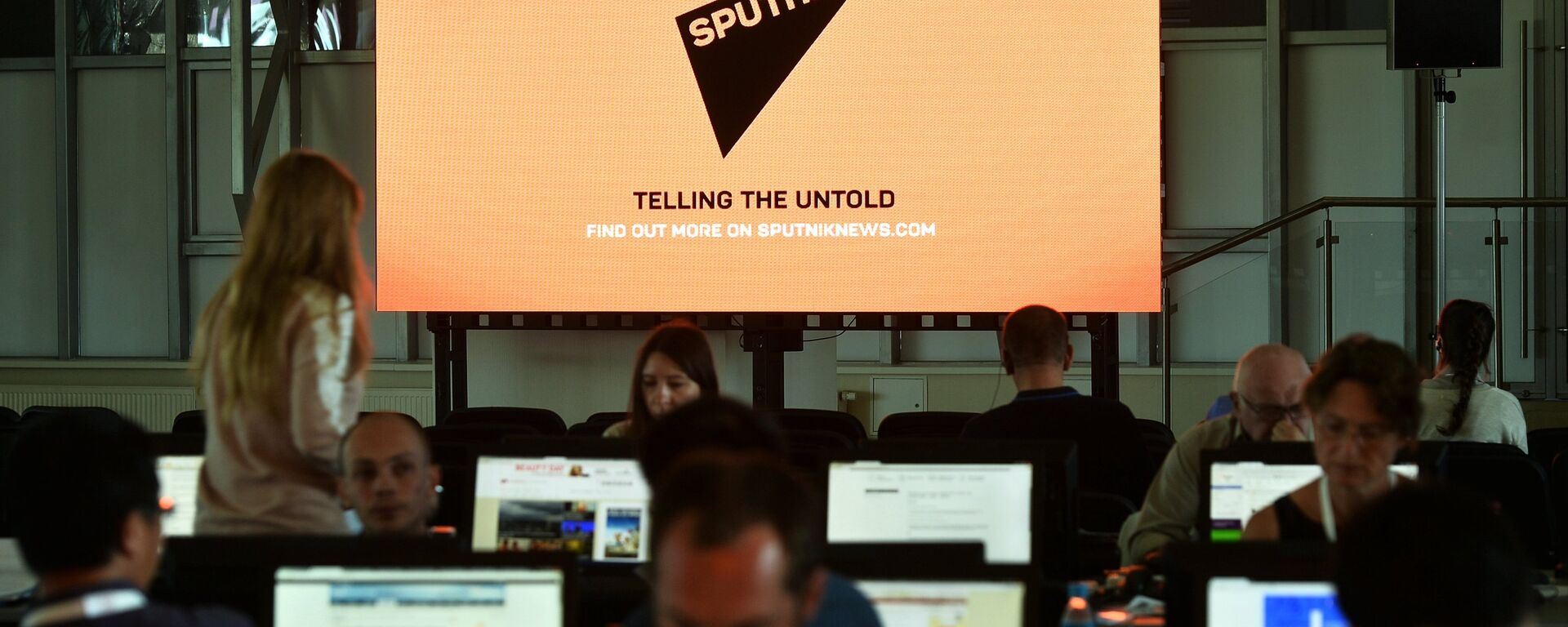https://sputnikglobe.com/20221028/the-bird-is-free-will-musk-tear-down-twitter-jails-wall-and-let-sputnik-out-1102802957.html
'The Bird is Free': Will Musk Tear Down Twitter Jail's Wall and Let Sputnik Out?
'The Bird is Free': Will Musk Tear Down Twitter Jail's Wall and Let Sputnik Out?
Sputnik International
Elon Musk took control of Twitter on Thursday and immediately fired CEO Parag Agrawal and several other executives, according to the US press. Will the... 28.10.2022, Sputnik International
2022-10-28T15:55+0000
2022-10-28T15:55+0000
2023-04-30T05:41+0000
americas
us
opinion
x (formerly twitter)
elon musk
free speech
regulations
sputnik
social media
censorship
https://cdn1.img.sputnikglobe.com/img/07e6/04/10/1094823226_0:0:3069:1727_1920x0_80_0_0_f3dc242e71bd1d3f6e664a7424989615.jpg
"Musk is making Twitter a private company, giving the green light for changes he hopes to make to the company," Dr. Binoy Kampmark, senior lecturer at the School of Global, Urban and Social Studies at RMIT University, Australia, told Sputnik. "This gives him greater flexibility from normally traded companies in terms of scrutiny and gives him tighter control over decision making and operations. Where he goes with this is impossible to say, given his eccentric bent, but he is most likely to shake things up at the company. He is already cleaning out the board members, for a start."Elon Musk finalized his $44 billion deal to buy Twitter on October 27. The saga lasted for several months. On April 14, the Tesla CEO announced an offer to buy the social media platform for $54.20 a share. After some considerations Twitter accepted the deal on April 25. However, on July 8, Musk's legal team notified the company’s chief legal officer that he wanted to terminate the deal, because Twitter did not provide the billionaire with relevant business information he requested. In particular, Musk challenged the platform's claim that just 5% of its monetizable daily active users (mDAUs) are spam accounts.The Tesla chief executive spent months in a high-stakes court battle to get out of the deal. Eventually, the billionaire made the decision to acquire the social media network at the original price of $54.20 per share, admitting that he is "overpaying" for the company.Once taking over Twitter, he reportedly fired several of the company’s executives, including CEO Parag Agrawal, CFO Ned Segal, policy chief Vijaya Gadde, general counsel Sean Edgett, and chief customer officer Sarah Personette.Meanwhile, Musk's acquisition of Twitter prompted a heated debate over whether the businessman, who has declared himself a champion of free speech, will reverse the platform's censorship policies and unblock some popular personal and media accounts.When it comes to Russian media accounts like RT and Sputnik, it's still unclear how the situation will pan out, according to the academic. On the one hand, there is absolutely no reason why RT and Sputnik should remain blocked, given Musk's free speech agenda; on the other hand, "he is a businessman, capricious and calculating, so it will be very much dependent on his business considerations in that matter," Kampmark remarked.Musk will see that the anti-Russian sentiment in North America and Western Europe is more intense than it was in February and may not withstand the pressure, even though he sounds like "a great believer in freedom of expression," according to Professor Ellis Cashmore, the author of "Screen Society" and an independent media analyst.Western countries shut RT and Sputnik down shortly after the beginning of the Russian special military operation to demilitarize and de-Nazify Ukraine under the pretext that Moscow had instrumentalized the country's media to wage information warfare and spread "false news" about the conflict. As a result, only one-sided Western coverage of the conflict was allowed in the media, on air and on social platforms. "Musk will be urged to cut down what is now called 'false news.'" suggested Cashmore.US lawmakers have been considering how to rein social giants in for several years. In September 2022, Senator Lindsay Graham, a well-known critic of social media giants, came up with a plan to regulate, and perhaps license the companies. In October, the European Union approved the Digital Services Act, new legislation aimed at regulating social media platforms, which will take effect in 2024. It is expected that the law will impose substantial content moderation requirements on social media giants and force them to limit what Brussels sees as false information, hate speech, and extremism.*Facebook is designated as an extremist organization in Russia.
https://sputnikglobe.com/20221028/snowden-on-musks-twitter-acquisition-platform-censorship-gone-too-far-1102798102.html
https://sputnikglobe.com/20220525/rt--sputnik-ban-eu-turned-into-nato-branch-limits-publics-access-to-information-activists-say-1095772379.html
americas
Sputnik International
feedback@sputniknews.com
+74956456601
MIA „Rossiya Segodnya“
2022
News
en_EN
Sputnik International
feedback@sputniknews.com
+74956456601
MIA „Rossiya Segodnya“
Sputnik International
feedback@sputniknews.com
+74956456601
MIA „Rossiya Segodnya“
us, opinion, x (formerly twitter), elon musk, free speech, regulations, sputnik, social media, censorship
us, opinion, x (formerly twitter), elon musk, free speech, regulations, sputnik, social media, censorship
'The Bird is Free': Will Musk Tear Down Twitter Jail's Wall and Let Sputnik Out?
15:55 GMT 28.10.2022 (Updated: 05:41 GMT 30.04.2023) Elon Musk took control of Twitter on Thursday and immediately fired CEO Parag Agrawal and several other executives, according to the US press. Will the billionaire now offer free speech to users of every stripe?
"Musk is making Twitter a private company, giving the green light for changes he hopes to make to the company," Dr. Binoy Kampmark, senior lecturer at the School of Global, Urban and Social Studies at RMIT University, Australia, told Sputnik. "This gives him greater flexibility from normally traded companies in terms of scrutiny and gives him tighter control over decision making and operations. Where he goes with this is impossible to say, given his eccentric bent, but he is most likely to shake things up at the company. He is already cleaning out the board members, for a start."
Elon Musk finalized his $44 billion deal to buy Twitter on October 27. The saga lasted for several months. On April 14, the Tesla CEO announced an offer to buy the social media platform for $54.20 a share. After some considerations Twitter accepted the deal on April 25. However, on July 8, Musk's legal team notified the company’s chief legal officer that he wanted to terminate the deal, because Twitter did not provide the billionaire with relevant business information he requested. In particular, Musk challenged the platform's claim that just 5% of its monetizable daily active users (mDAUs) are spam accounts.
The Tesla chief executive spent months in a high-stakes court battle to get out of the deal. Eventually, the billionaire made the decision to acquire the social media network at the original price of $54.20 per share, admitting that he is "overpaying" for the company.
Once taking over Twitter, he reportedly
fired several of the company’s executives, including CEO Parag Agrawal, CFO Ned Segal, policy chief Vijaya Gadde, general counsel Sean Edgett, and chief customer officer Sarah Personette.

28 October 2022, 12:24 GMT
Meanwhile, Musk's acquisition of Twitter prompted a heated debate over whether the businessman, who has declared himself a champion of free speech, will reverse
the platform's censorship policies and unblock some popular personal and media accounts.
"Musk has made it clear that he wishes to restore the accounts of such figures as Donald Trump," explained Kampmark. "His ban from the platform 'alienated a large part of the country and did not ultimately result in Donald Trump not having a voice.' In his view, it was a 'morally bad decision, to be clear, and foolish in the extreme.' We can take it from such comments that the platform will be liberalized, enabling other figures to resume their place on the digital podium."
When it comes to Russian media accounts like RT and Sputnik, it's still unclear how the situation will pan out, according to the academic. On the one hand, there is absolutely no reason why RT and Sputnik should remain blocked, given Musk's free speech agenda; on the other hand, "he is a businessman, capricious and calculating, so it will be very much dependent on his business considerations in that matter," Kampmark remarked.
Musk will see that the anti-Russian sentiment in North America and Western Europe is more intense than it was in February and may not withstand the pressure, even though he sounds like "a great believer in freedom of expression," according to Professor Ellis Cashmore, the author of "Screen Society" and an independent media analyst.
Western countries shut RT and Sputnik down shortly after the beginning of the Russian special military operation to demilitarize and de-Nazify Ukraine under the pretext that Moscow had instrumentalized the country's media to wage information warfare and spread "false news" about the conflict. As a result, only one-sided Western coverage of the conflict was allowed in the media, on air and on social platforms. "Musk will be urged to cut down what is now called 'false news.'" suggested Cashmore.
"I think Musk will be cautious about changing the rules or he risks a complete collapse of the company," the author continued. "What's more likely is that rule changes will be imposed by governments. This is already happening to Facebook* and Twitter is bound to be affected. Much as social media organizations try to resist some sort of compliance control, the trend is towards making social media less lawless and more orderly. So, Musk may have no choice but to change and not necessarily in a way he approves of."
US lawmakers have been considering how to rein social giants in for several years. In September 2022, Senator Lindsay Graham, a well-known critic of social media giants, came up with a plan to regulate, and perhaps license the companies. In October, the European Union approved the Digital Services Act, new legislation aimed at regulating social media platforms, which will take effect in 2024. It is expected that the law will impose substantial content moderation requirements on social media giants and force them to limit what Brussels sees as false information, hate speech, and extremism.
"[Musk] will be independent, but that does not mean he will be objective, neutral, impartial or non-partisan," suggested Cashmore. "It is not possible to take a position such as this. I think he will run Twitter much as it is, for the next few months. He has sacked some executives, indicating that he intends to take a more direct active role himself. I suspect he genuinely intends to steer clear of regulation and, if anything, free up Twitter. But he simply will not be allowed to deregulate to any degree, at least not without risking the ruination of the whole company."
*Facebook is designated as an extremist organization in Russia.




